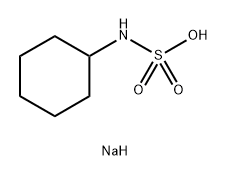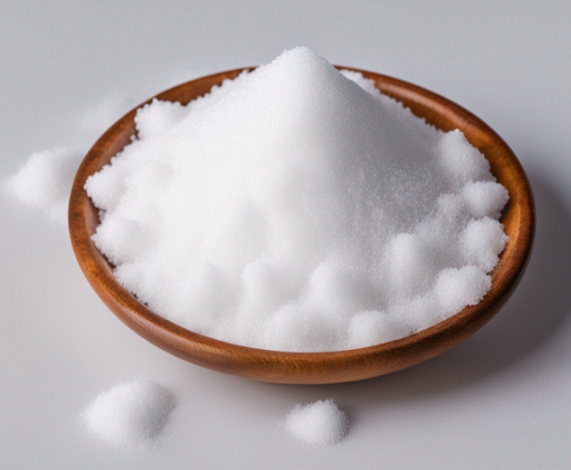
Cyclamate
- Product NameCyclamate
- CAS139-05-9
- MFC6H14NNaO3S
- MW203.23
- EINECS205-348-9
- MOL File139-05-9.mol
Chemical Properties
| Melting point | >300 °C (lit.) |
| Density | 1.58[at 20℃] |
| vapor pressure | 0.002Pa at 150℃ |
| storage temp. | room temp |
| solubility | 200g/l |
| form | Powder |
| color | White |
| PH | 5.5-7.5 (100g/l, H2O, 20℃) |
| Odor | Odorless. Sweet taste, perceptible at concentrations higher than 100 ppm in water. |
| Water Solubility | >=10 g/100 mL at 20 ºC |
| Merck | 14,2703 |
| BRN | 4166868 |
| Stability | Hygroscopic |
| InChIKey | UDIPTWFVPPPURJ-UHFFFAOYSA-M |
| LogP | -2.63 at 20℃ |
| CAS DataBase Reference | 139-05-9(CAS DataBase Reference) |
| IARC | 3 (Vol. Sup 7, 73) 1999 |
| EPA Substance Registry System | Sodium cyclamate (139-05-9) |
Safety Information
| Hazard Codes | Xn |
| Risk Statements | 22 |
| Safety Statements | 36/37-24/25 |
| WGK Germany | 3 |
| RTECS | GV7350000 |
| TSCA | Yes |
| HS Code | 29299000 |
| Toxicity | Sodium cyclamate is a non-nutritive sweetener that is about 30 times sweeter than cane sugar. The oral LD50s in rats and mice are 15.25 and 17.0 g/kg, respectively. It was banned as a food additive because of findings that it caused bladder cancer in rodents. It appears to act as a promoter. There is also evidence that it causes toxicity in the male reproductive system. |


